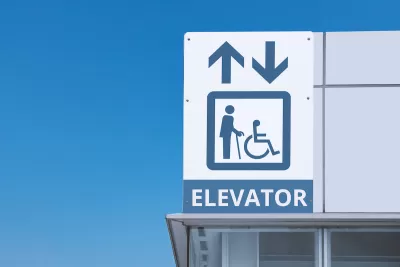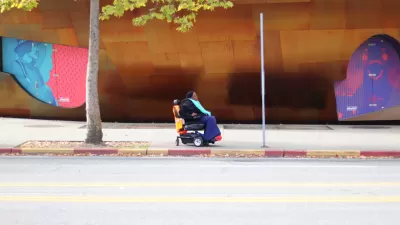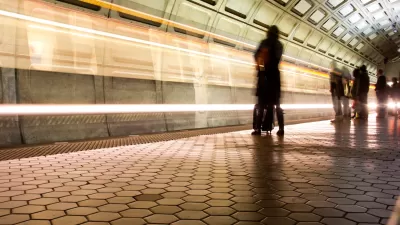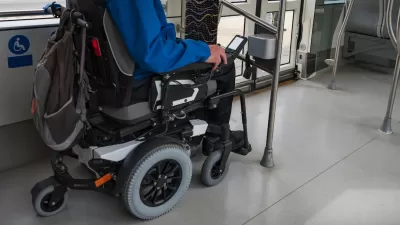Even when accessibility is taken into account, transit stations and pedestrian infrastructure often still fail to make appropriate accommodations.

Despite federal and state laws dictating that public spaces must be accessible to people with disabilities and mobility challenges, many cities in the United States and Canada remain largely inaccessible, writes Ron Buliung in a piece for The Conversation.
According to Buliung, “Access to safe and reliable public transit is one such problem. For example, many of the issues plaguing paratransit (ideally on-demand, door-to-door service for disabled persons) today — unacceptably long wait times, having to plan and schedule days in advance, service costs, convoluted trip regulations, failing to pick people up — are often as old as the services themselves.”
Public transit stations, meanwhile, often lack functional elevators and other amenities. When they do have them, they often face what Buliung calls the ‘last millimetre problem:’ “a wide gap or vertical misalignment between platforms and transit vehicles making it impossible or hazardous for some disabled persons, like my daughter, to get on or off the system.”
Bike infrastructure, too, can exclude the needs of people with disabilities by failing to provide signals for blind pedestrians, for example.
For Buliung, part of the solution is for cities to more carefully listen to the needs of people with disabilities and include them in decision-making in transportation and infrastructure projects from the beginning. “Real accountability, rather than performative empty consultation, should be the order of the day.”
FULL STORY: Despite legislative progress, accessible cities remain elusive

Montreal Mall to Become 6,000 Housing Units
Place Versailles will be transformed into a mixed-use complex over the next 25 years.

Planetizen Federal Action Tracker
A weekly monitor of how Trump’s orders and actions are impacting planners and planning in America.

California High-Speed Rail's Plan to Right Itself
The railroad's new CEO thinks he can get the project back on track. The stars will need to align this summer.

Tenant Advocates: Rent Gouging Rampant After LA Wildfires
The Rent Brigade says it's found evidence of thousands of likely instances of rent gouging. In some cases, the landlords accused of exploiting the fires had made campaign donations to those responsible for enforcement.

Seattle’s Upzoning Plan is Ambitious, Light on Details
The city passed a ‘bare-bones’ framework to comply with state housing laws that paves the way for more middle housing, but the debate over how and where to build is just getting started.

DOJ Seeks to End USDOT Affirmative Action Program
The Disadvantaged Business Enterprise Program encouraged contracting with minority- and women-owned businesses in the transportation sector, where these groups are vastly underrepresented.
Urban Design for Planners 1: Software Tools
This six-course series explores essential urban design concepts using open source software and equips planners with the tools they need to participate fully in the urban design process.
Planning for Universal Design
Learn the tools for implementing Universal Design in planning regulations.
City of Camden Redevelopment Agency
City of Astoria
Transportation Research & Education Center (TREC) at Portland State University
City of Camden Redevelopment Agency
Municipality of Princeton (NJ)
Regional Transportation Commission of Southern Nevada





























